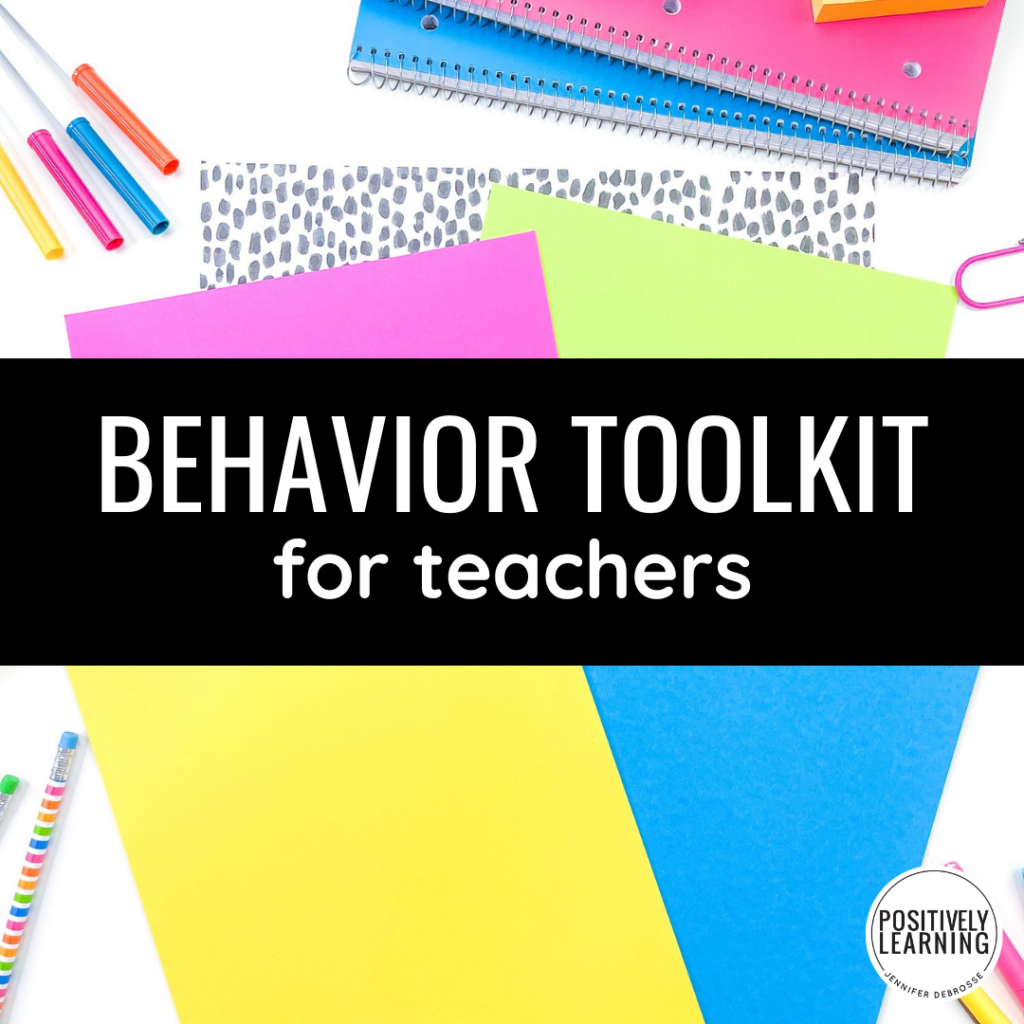Behavior Toolkit: Strategies Guide for Teachers
As special educators, we wear multiple hats – balancing data collection, behavior observation, documentation, and student support. We serve as behavior consultants and thought partners, collaborating with teachers, paraprofessionals, and school staff to meet the diverse needs of our students. It's a lot, to say the least. And you may not feel like you're in a position to be giving this type of advice to others because maybe you're struggling with classroom management yourself. To empower you in this role, here's a comprehensive behavior toolkit, that will support both students, your colleagues, and YOU.

This blog post describes all the resources included in this positive behavior support and provides practical strategies and tools to create a positive and inclusive classroom environment. Grab these great classroom management tools for yourself or build your own behavior toolkit to enhance your professional development and classroom practices.
Behavior Toolkit – Resources for Teachers
- Behavior Reference “Cheat Sheet” Handouts:
- Gain insights into the function of behavior, behavior reinforcement, and the distinction between Functional Behavior Assessment (FBA) and Behavior Intervention Plan (BIP). These references pages outline best practices – ideal for supporting positive relationships with classroom teachers and school personnel.
- Response Protocol:
- Find exemplars and forms to streamline your response to various behaviors. This action plan resource will offer positive behavioral interventions across the grade levels.
- Contingency Map:
- Visualize the relationships between behaviors, antecedents, and consequences. The contingency map provides a clear framework for understanding and addressing behavior patterns.
- Levels of Behavior:
- Gain a deeper understanding of different behavior levels and how they impact learning. This tool will guide you in tailoring interventions to meet individual student needs and help support teachers determining behavioral expectations.
- ABC Data Recording:
- Simplify your data collection process with the ABC Data Recording form. Use it to track antecedents, behaviors, and consequences, providing valuable insights for behavior analysis.
- Behavior Observation Forms:
- Capture comprehensive behavior observations using these forms. Document student behaviors, environmental factors, and your own observations to inform effective intervention strategies.
- Behavior Intervention Form:
- Streamline your behavior intervention planning with this form. Identify target behaviors, set goals, and outline strategies to promote positive change.
- Behavior Documentation:
- Maintain thorough and organized behavior documentation using this resource. Collect data on behavior incidents, interventions, intensive supports, and outcomes to inform decision-making and monitor progress.

Behavior Kit – Resources for Students
- Goal-Setting Sheets:
- Empower students to take ownership of their behavior with goal-setting sheets. Reduce power struggles as you help them identify areas for improvement and set actionable goals.
- Behavior Reflection Pages:
- Encourage students to reflect on their behavior using these reflection pages. Foster self-awareness, responsibility, and growth mindset.
- Home-School Connection (Summary of Behavior):
- Promote effective communication between school and home by providing a summary of students' behavior. Share insights, progress, areas of focus, and positive words with parents or caregivers.
- Behavior Bingo (Focus on Strategies):
- Make behavior learning engaging and fun with reward menu! Young children can learn and apply different strategies while playing this interactive game.
- Token Boards:
- Additional resources designed to enhance positive behavior reinforcement. Use these incentive charts to motivate and reward students for demonstrating desired behaviors!



Now that you have an idea of what should go into your behavior toolkit, where should you begin?
My biggest piece of advice – and I learned this the hard way – is to follow whatever guidance your school or grade level is already providing. Does your school use Class Dojo? A daily communication tool? Class incentives? Nothing at all?
Gather this information first before diving in. If there's no consistent system in place, that's okay – you'll be able to choose the right tools! But if there's already a system available that your students will be expected to participate in and follow, I would absolutely recommend incorporating it as much as you can. This will be so much easier on your students and less complicated for all the supporting adults. It may also keep you from reinventing the wheel!
If you do find yourself starting from scratch, take a look at this done-for you option:

This is a complete collection for what worked for students (and staff) I supported over the years. Anything that didn't work for us was tossed! 👋







